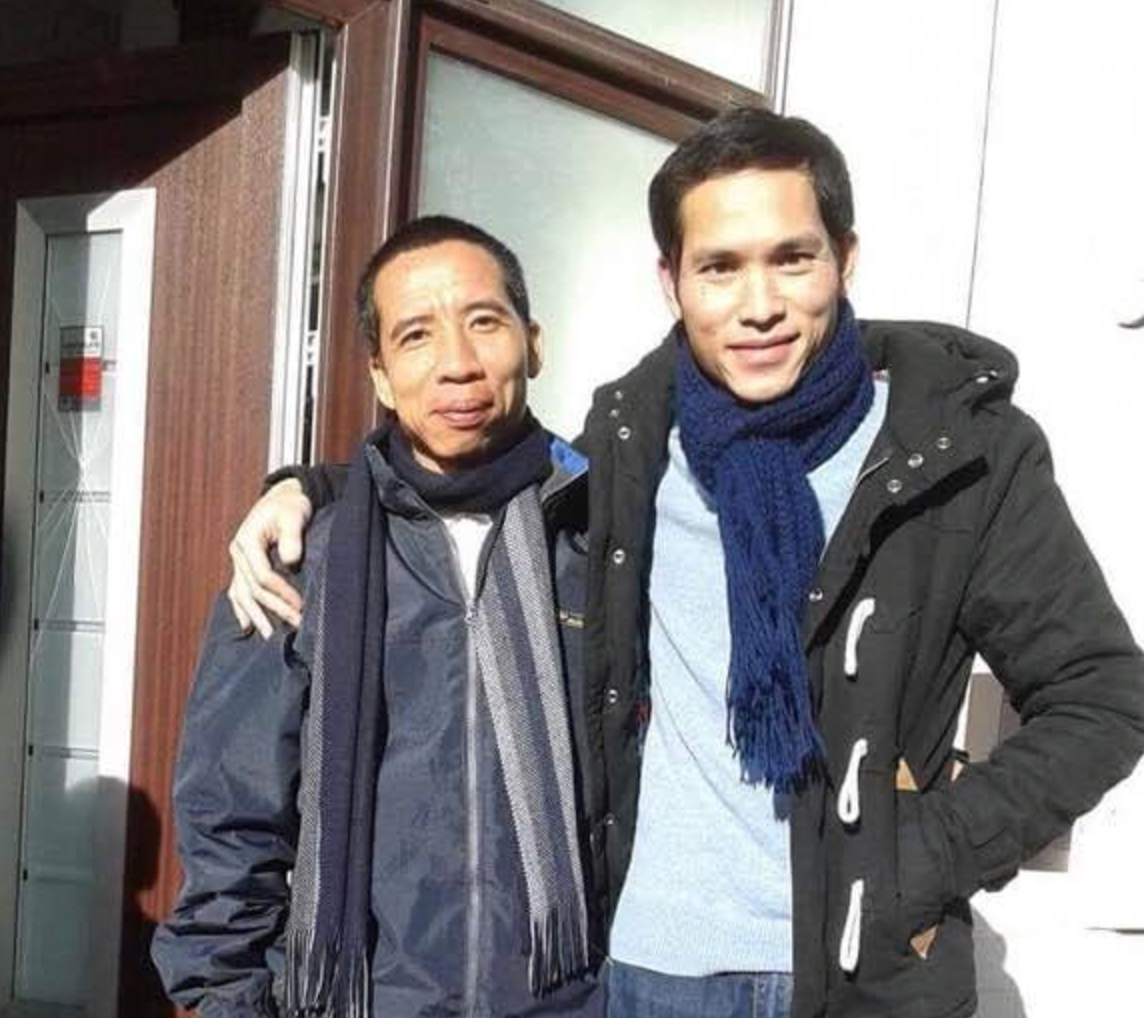Published January 13, 2017
Vietnamese authorities released and promptly exiled a blogger and democracy activist held for six years on charges of subversion.
Đặng Xuân Diệu (left) with his nephew after his arrival in Paris. (Photo courtesy: Trương Minh Tam / Facebook)
Đặng Xuân Diệu, an engineer, member of pro-democracy party Việt Tân, and member of the Congregation of the Most Holy Redeemer, was released on Thursday afternoon from prison camp K3 in the city of Vũng Tàu and taken straight to Tân Sơn Nhất Airport under heavy police escort. The 37-year-old was put on a commercial flight to Paris and arrived Friday at Charles De Gaulle airport.
Diệu's family members, who live in Nghệ An province in the northern region of Việt Nam, were informed of his release just a day before he was escorted to the airport in Sài Gòn, making it impossible for them to make travel arrangements to see him before he was exiled.
Diệu was arrested in 2011 during a widespread crackdown on dissent. He was later convicted along with thirteen other young activists, all charged with “attempting to overthrow the state" and sentenced to between three to 13 years in prison. Diệu received the harshest sentence of 13 years. He has suffered extreme mistreatment in prison and has launched multiple hunger strikes in protest, refusing to accept guilt or wear prison uniforms.
Diệu was serving the sixth year of his 13-year sentence when European Union officials struck an agreement with the Vietnamese government for his release. France was the EU country to offer political asylum.
“Many organizations and elected officials campaigned for Diệu's freedom. After his mistreatment became known, thousands of people sent postcards to the prison where Diệu was held. A former inmate told me that wardens didn't deliver the postcards to Diệu but many in the prison -- guards and prisoners -- understood that Diệu had garnered international support. It's with that momentum that I believe the Hà Nội government agreed to release Diệu on ‘humanitarian grounds’. No one should be exiled from their own country but I'm relieved that Diệu's ordeal is over,” Duy Hoàng, a spokesperson for Viêt Tân, said.
The BBC reports that Diệu is in need of medical treatment. In a 2015 interview, Diệu's former cellmate Trương Minh Tam told Loa that Diệu had been beaten, denied access to adequate food and clean drinking water, and forced to eat and sleep next to his excrement. Tam urged the international community to advocate for Diệu due to his dire conditions.
The United Nations Working Group on Arbitrary Detention (UNWGAD) ruled in 2013 that the Hà Nội government violated Vietnamese and international law by arbitrarily detaining Diệu and the 13 activists. This ruling came as a result of a petition filed by Allen Weiner, director of the Stanford Program in International Law at Stanford Law School, who serves as Diệu's international lawyer.
Speaking on the power of advocacy, Weiner told Loa that international law sometimes “seems like a weak tool to try to invoke protection of freedom of expression, freedom of conscience, and freedom of assembly.” He said Diệu's release “highlights the limits of the Vietnamese government’s repressive power. It shows how the actions of civil society movements, international organizations, and governments around the world that support human rights can help defend the human rights of Việt Nam's citizens.” The Vietnamese government has previously released and exiled prominent dissidents, such as bloggers Điếu Cày and Tạ Phong Tần. For dissidents who long to continue organizing in Việt Nam, the Vietnamese authorities’ tactic of exile is another method of quelling dissent. For family members of dissidents, it is another form of punishment.
Đặng Xuân Hà, brother of Đặng Xuân Diệu, told the BBC, “While we are happy that Diệu has been released from prison, one profound sadness is that my 70-year-old mother wanted to see her son before he left, but was not able to.”


